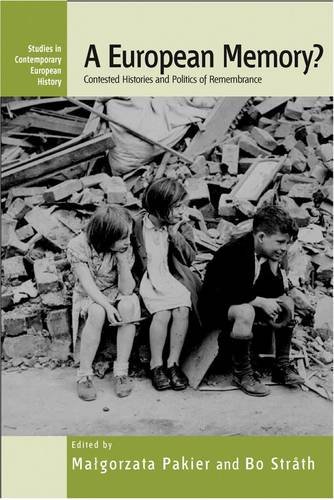

Most ebook files are in PDF format, so you can easily read them using various software such as Foxit Reader or directly on the Google Chrome browser.
Some ebook files are released by publishers in other formats such as .awz, .mobi, .epub, .fb2, etc. You may need to install specific software to read these formats on mobile/PC, such as Calibre.
Please read the tutorial at this link: https://ebookbell.com/faq
We offer FREE conversion to the popular formats you request; however, this may take some time. Therefore, right after payment, please email us, and we will try to provide the service as quickly as possible.
For some exceptional file formats or broken links (if any), please refrain from opening any disputes. Instead, email us first, and we will try to assist within a maximum of 6 hours.
EbookBell Team

0.0
0 reviewsAn examination of the role of history and memory is vital in order to better understand why the grand design of a United Europe-with a common foreign policy and market yet enough diversity to allow for cultural and social differences-was overwhelmingly turned down by its citizens. The authors argue that this rejection of the European constitution was to a certain extent a challenge to the current historical grounding used for further integration and further demonstrates the lack of understanding by European bureaucrats of the historical complexity and divisiveness of Europe's past. A critical European history is therefore urgently needed to confront and re-imagine Europe, not as a harmonious continent but as the outcome of violent and bloody conflicts, both within Europe as well as with its Others. As the authors show, these dark shadows of Europe's past must be integrated, and the fact that memories of Europe are contested must be accepted if any new attempts at a United Europe are to be successful.
Małgorzata Pakier has recently received a PhD from the European University Institute in Florence, Department of History and Civilization. She has published articles in Polish and English on discourses and images of the Holocaust in popular culture and film.
Bo Stråth was Professor of Contemporary History at the European University Institute in Florence (1997-2007) and is currently Academy of Finland Distinguished Professor of N